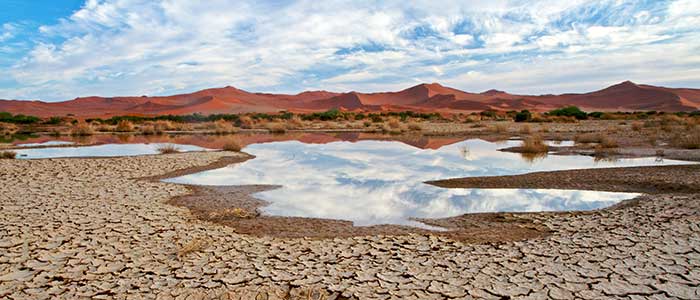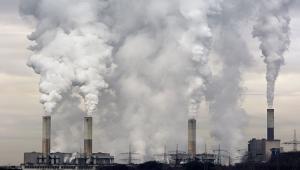Web_DroughtZambia_shutterstock_74778760.jpg

Drought in Africa
Ahead of global climate talks in Paris next week, Oxfam urged leaders to improve pledges to cut emissions. Studies have shown countries’ current pledges represent a significant step forward, but will have to be updated regularly to keep a global temperature rise bellow 2°C.
Winnie Byanyima, Oxfam’s executive director, said world leaders need to “step up” ‒ despite growing momentum because “what is on the table so far is not enough”.
She called for further cuts to emissions, more climate funding to help already vulnerable communities who have done little to cause climate change adapt and for the human cost of global warming to be central to discussions in Paris.
Oxfam’s COP21: Game-changers in the Paris climate deal report found that, without further emissions commitments, a 3°C warming scenario would leave developing countries facing an additional $270bn each year in adaptation costs, taking the total bill to $800bn by 2050.
In addition they would face losing $1.7tn in their economies annually ‒ $600bn more than if warming was contained at 2°C and four times more than rich countries gave in development aid last year.
The commitment to keep the global temperature rise by bellow 2°C is expected to be a large feature of the COP21 talks in Paris next week, as are the national pledges by more than 150 countries to cut emissions, known as Intended Nationally Determined Contributions (INDCs).
However, while the INDCs make huge progress in cutting emissions and make a global temperature rise of no higher than 2°C possible, research has shown if these targets are fully met the world is likely to warm by 3°C and further commitments will be needed in the future.
Current climate funding commitments to developing countries run until 2020. In the Copenhagen climate summit in 2009, world leaders set a goal to mobilise $100bn a year in climate finance by 2020 to address the needs of developing countries.
However, Oxfam said that more funding is still needed, especially towards adaptation which remains woefully short in finance needs. The World Bank has also said this week that a further $16bn is needed before 2020 to ensure Africa alone is resilient to the current impacts of climate change.
Oxfam estimates that public climate finance was a meagre $20bn on average in 2013/14, and only $3-5bn of this was dedicated for adaption.













